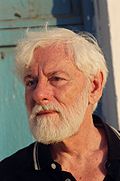That Arab League (actually the "League of Arab States") has all the weaknesses and few of the strengths of a coalition. Founded with British encouragement at the end of World War II, it is a loose -- very, very loose -- association of states with vastly different interests.
In a way, it represents the Arab World as it is -- or was until yesterday. It is a world in which two (and perhaps three) contradictory trends are at work.
On the one hand, there is the perpetual longing of the Arab masses for Arab unity. It is real and profound, nourished by memories of past Arab glories. It finds its most concrete current expression in solidarity with the Palestinian people. Arab leaders who have betrayed this trust are paying the price now.
On the other hand, there are the cynical calculations of the member states. From the very first moment of its existence, the League has reflected the labyrinthine world of mutually antagonistic and competing regimes. Cairo always vies with Baghdad for the crown of Arab leadership, ancient Damascus competes with both. The Hashemites hate the Saudis, who displaced them in Mecca. Add to this the myriad ideological, social and religious tensions, and you get the picture.
The first major undertaking of the League -- the 1948 intervention in the Israeli-Palestinian war -- ended in an Arab disaster, largely because the armies of Egypt and Jordan tried to forestall each other, instead of concentrating their energies against us. That was our salvation. Since then, practically all Arab regimes have used the Palestinian Cause each for its own interests, with the Palestinian people serving as a ball in this cynical game.
The present Arab Awakening is not led by the League, by its very nature it is directed against everything the League is and represents. In Bahrain the Saudis are supporting the same forces the rebels are fighting against in Tripoli. As a factor in the Libyan crisis, the League is best ignored.
There is a third level of inter-Arab relations -- the religious one. Islam has a strong hold on the Arab masses almost everywhere, but like every great religion, Islam has many faces indeed. It means quite different things to Wahabis in Riadh, Taliban in Kandahar, al-Qaeda people in Yemen, Hezbollah fighters in Lebanon, royalists in Morocco and the simple fellah on the shores of the Nile. But there is a vague sense of community.
So any Muslim Arab feels that he or she belongs to three different but overlapping identities, with the borders between them ill-defined -- the "wotan," which is the local nation, like Palestine or Egypt, the "kaum," which is the pan-Arab identity, and the "umma," which is the all-Islamic community of believers. I doubt whether there are two scholars who agree on these definitions.
SO HERE we are, people of March 2011, after having followed our basic human instinct and pushed for armed intervention against the threatened disaster in Libya.
It was the right, the decent, thing to do.
With due -- and sincere - respect to all those who criticized my stand, I am convinced that it was the humane one.
In Hebrew we say: He who starts doing a good deed must finish it. Qaddafi must be removed, the Libyan people must be given a decent chance to take their fate into their own hands. So, too, the Syrian people, the Yemenites, the Bahrainis and all the others.
I don't know where it will lead them -- each of them in their own country. I can only wish them well -- and hope.
And hope that this time Napoleon's dictum will not be proven right.
(Note: You can view every article as one long page if you sign up as an Advocate Member, or higher).





